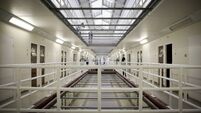Easing of consumer inflation to 5% likely to be respite only

The price of bread, up 7% in the year, ice cream up by 6.6%, and margarine prices which are 12% higher, may reflect the amounts of energy needed to make such products. File photo
Irish consumer price inflation rose by 5% in January, as price hikes for energy and other related costs weighed on household bills.
However, inflation was down from the 5.5% rate posted in December – helped by discounting for clothing and footwear retailers in their post-Christmas sales – and few economists believe the latest figures mark any sort of respite.














